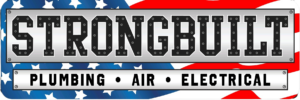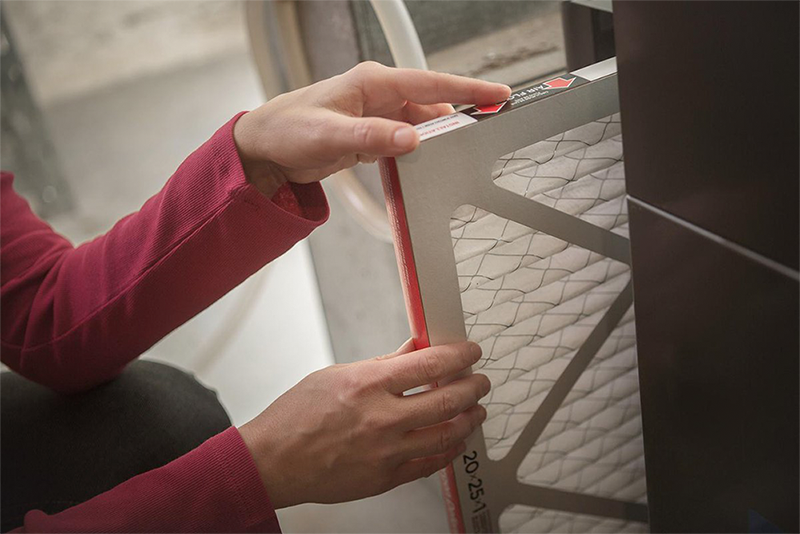Living in a desert climate means dealing with intense heat, dry air, and dust—conditions that put your HVAC system through its paces year-round. Whether you’re blasting the AC to escape triple-digit temps or running the heat on chilly desert nights, your system relies on one key component to operate efficiently: the air filter.
It’s a small part of your HVAC system, but your air filter plays a big role in protecting your indoor air quality, improving comfort, and extending the life of your heating and cooling equipment. And yet, many homeowners forget about it entirely until problems start to surface.
Here’s why regularly changing your air filter matters—especially in dusty, arid climates—and what you can do to keep your home comfortable, clean, and efficient year-round.
What Does an HVAC Air Filter Do?
Your HVAC filter is a barrier designed to capture airborne particles before they enter your heating and cooling system. It traps dust, dirt, pollen, pet dander, and mold spores, keeping them out of the air you breathe and away from sensitive HVAC components, such as coils and blower motors.
But filters don’t last forever. As they collect more debris, they become clogged and less effective—eventually restricting airflow, straining your system, and impacting your comfort.
Why Filter Changes Matter More in Desert Climates
In desert areas, air filters work even harder than in other environments. Here’s why:
- Dust Is a Constant: With little rainfall and frequent winds, desert homes can deal with high levels of dust infiltration—even when windows and doors are closed. That dust gets pulled into your HVAC system and caught by your air filter, filling it up faster than in more temperate or humid regions.
- Allergens and Pollens: Desert plants might look sparse, but they can still produce allergenic pollens that enter your home through open doors, windows, and ventilation systems.
- Extended HVAC Use: In arid climates, HVAC systems often run longer and more frequently, especially during summer months when temperatures can soar. The more you run your system, the more air moves through the filter—and the more particles it collects.
Because of these factors, desert dwellers should change their air filters more often than homeowners in milder climates.
What Happens When You Don’t Change the Filter?
A dirty or clogged filter doesn’t just reduce air quality—it can lead to serious issues for your HVAC system and your home:
1. Reduced Airflow and Efficiency
When a filter becomes packed with dust and debris, airflow through the system slows down. This causes your HVAC unit to work harder to push air through the ductwork, increasing energy use and utility costs. You might notice certain rooms aren’t cooling or heating evenly or that your system seems to run constantly without ever reaching the set temperature.
2. Higher Energy Bills
Restricted airflow and an overworked system doesn’t just lead to problems with cooling. That extra effort also translates to higher energy consumption and elevated utility bills—something no homeowner wants, especially during the long, hot summer months.
3. System Overheating and Damage
When airflow is blocked, the blower motor has to work harder to push air through your system. This extra effort can make the motor to overheat and wear out sooner. Although components like the compressor aren’t directly affected by airflow, poor airflow lowers the system’s overall efficiency and can eventually cause the compressor to overheat or fail prematurely. Regular filter changes help reduce this strain, preventing premature wear and extending the life of your system.
4. Poor Indoor Air Quality
A clogged filter can no longer effectively trap airborne contaminants, allowing them to circulate through your home. This can aggravate asthma, allergies, and other respiratory conditions, especially in households with pets, young children, or older adults.
5. Dirty Ductwork and Components
When your filter can’t catch debris, it builds up in your ducts and on system components. This not only reduces efficiency but can lead to foul odors, mold growth from humidity, and expensive cleanings or repairs.
How Often Should You Change Your Air Filter?
While most manufacturers recommend replacing your filter every 60 to 90 days, homeowners in desert environments should be more proactive. Depending on your home, lifestyle, and type of filter, the frequency you need to swap your filter will change.
For example, here are some guidelines to help determine your ideal schedule if you have a fiberglass or pleated HVAC filter:
- Every 30 Days: If you have pets, allergies, or live in a particularly dusty area.
- Every 60 Days: For average suburban homes without pets or major allergy concerns.
- Every 90 Days: In rare cases—such as part-time homes or homes with little system usage.
Not sure what’s right for your home? Start by checking your filter monthly. If it looks dark, dusty, or clogged, it’s time for a replacement.
Signs Your Filter Needs Changing
Even if you lose track of your schedule, your system will often tell you when it’s time for a change. Watch for these warning signs:
- Uneven temperatures or weak airflow
- A spike in your energy bill
- More dust around your home than usual
- Worsening allergy or asthma symptoms
- System frequently cycling on and off
If you notice any of these issues, replacing the filter is a simple first step that can make a big difference.
How to Choose the Right Filter
Not all filters are created equal. When replacing yours, make sure you choose the correct size and type for your system. Filters are typically rated by MERV (Minimum Efficiency Reporting Value), which indicates how well they trap particles.
- MERV 6–8: Basic protection—good for homes without pets or allergy concerns.
- MERV 9–12: Better filtration—ideal for families with pets or allergy sufferers.
- MERV 13+: Hospital-grade—captures smaller particles like bacteria and viruses but may restrict airflow in some systems not built for high-resistance filters.
Always consult your HVAC manufacturer’s recommendations or ask a professional technician if you’re unsure which filter is right for your system. They can help you identify a filter that will fit your system and your needs.
Make Filter Changes Part of Your Maintenance Routine
Replacing your air filter is one of the easiest and most affordable ways to protect your home comfort system. It takes just a few minutes but offers major benefits in return:
- Improved energy efficiency
- Better indoor air quality
- Reduced wear and tear
- Lower utility costs
- A longer-lasting HVAC system
For best results, combine regular filter changes with annual professional maintenance. At StrongBuilt, we offer comprehensive HVAC tune-ups designed to keep your system running smoothly through the harsh desert climate. Our expert technicians check your filters, test your system’s performance, clean key components, and catch small problems before they turn into costly repairs.
Small Change, Big Impact
In the high-dust, high-heat environment of the desert, your HVAC system is working overtime to keep you cool, clean, and comfortable. But it can’t do it alone. Replacing your air filter regularly is a simple step that delivers serious benefits for your health, your wallet, and your home’s long-term performance.
If you can’t remember the last time you changed your filter—or if you’re noticing airflow or air quality issues—don’t wait. Swap it out today, or give the pros at StrongBuilt a call. We’ll help you choose the right filter, inspect your system, and make sure everything is running at its best.


